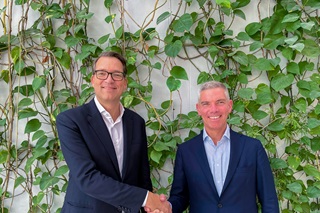SHV Energy and DCC Energy: Partnering for improved rLG access

Our partnership aims to address the key challenges currently preventing increased supply of rLG, including affordability, sustainability, supply chain development and technology readiness:
A joint assessment of projects and investments in rLG supply options by leading players gives the industry the best chance of making the supply of rLG more attractive to key stakeholders such as customers, regulators, financiers and other LPG distributors.
To undertake the collaboration, both parties have formed a joint working group which meets on a weekly basis. The group is comprised of 11 employees (six from SHV Energy, and five from DCC Energy), split into several workstreams that focus on the key topics mentioned above.
Every month, the working group reports to a steering committee comprising the companies’ respective CEOs and CFOs. The working group reports on progress made on its assessments of the most viable rLG supply options in Europe, placing emphasis on aspects such as government support, market conditions and regulatory frameworks, all while adhering strictly to confidentiality obligations and competition law.
The current phase of activity is due to conclude in mid-2025. After this, we will make a recommendation on the best way forward to increase the supply of rLG in our industry.
One thing we have learned since the collaboration began is that the challenges the industry faces in accessing rLG supply are best solved in partnerships that can form an ecosystem of willing collaborators. We have great confidence that the collaboration with DCC will evolve and grow as we seek solutions to support an increased rLG supply for the future.

"One thing we have learned since the collaboration began is that the challenges facing the industry in accessing rLG supply are best solved in partnerships that can form an ecosystem of willing collaborators.”
Frankie Ugboma
rDME Lead, SHV Energy